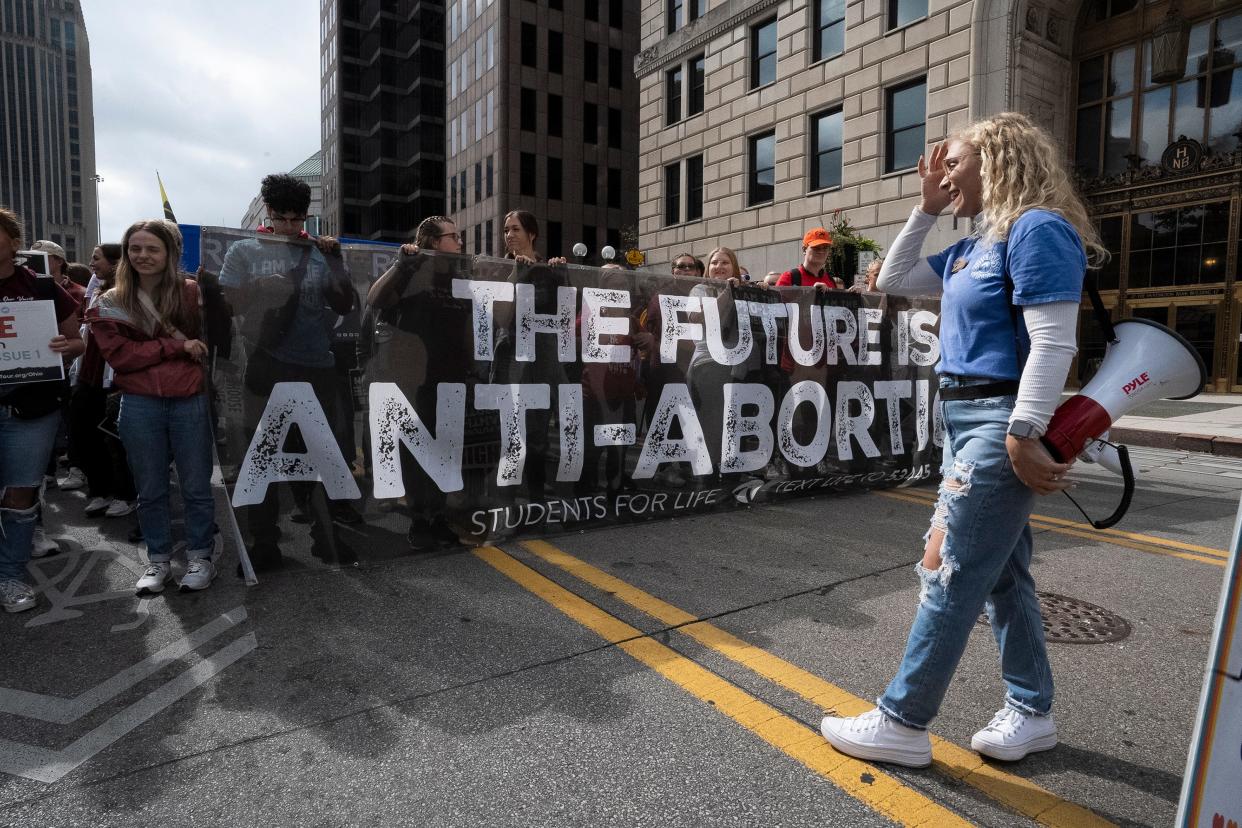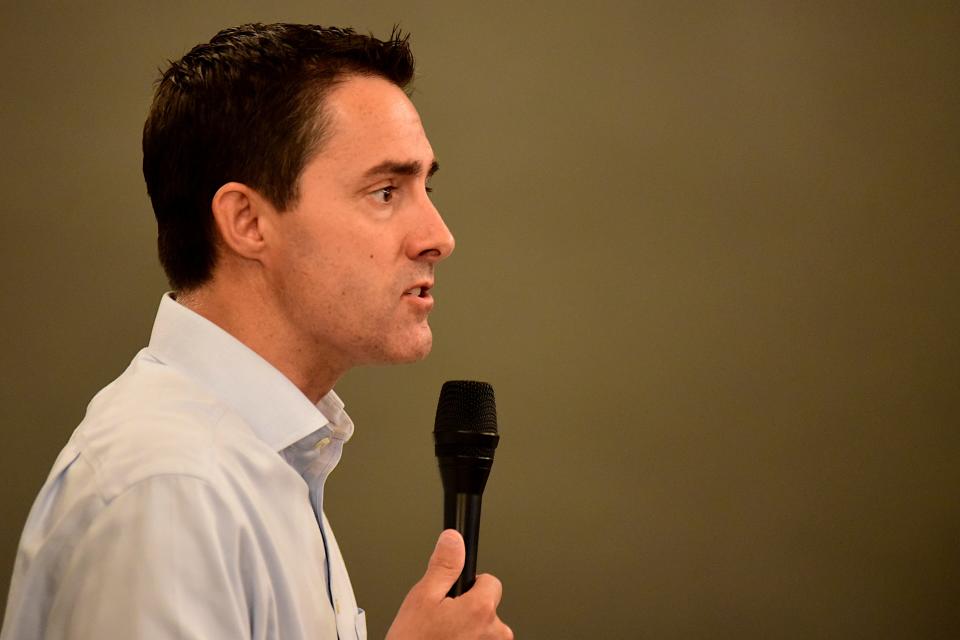Federal ban or state issue? Where 2024 Ohio Senate candidates stand on abortion

- Oops!Something went wrong.Please try again later.
- Oops!Something went wrong.Please try again later.
After Roe v. Wade fell last year, abortion opponents are divided over what comes next: Enact a federal ban, or leave it to the states?
As Ohioans decide whether to support a constitutional right to abortion this fall, that fracture is on display in the state's high-profile 2024 U.S. Senate race.
Three Republicans are running for the chance to take on Sen. Sherrod Brown, D-Ohio, next year: Secretary of State Frank LaRose, Cleveland businessman Bernie Moreno and state Sen. Matt Dolan, R-Chagrin Falls. The primary is five months away − just around the corner in campaign time − but candidates and voters alike are preoccupied with the Nov. 7 election on Issue 1.
The proposed amendment, if passed, would enshrine the right to an abortion up until viability and establish the right to other reproductive health care. LaRose, Moreno and Dolan all oppose Issue 1, and LaRose and Dolan appeared at an Ohio Republican Party event over the weekend urging Ohioans to vote no.
But how they'd address abortion policy in the U.S. Senate varies by candidate.
Where do Ohio GOP Senate candidates stand?
Moreno said he's advocating for a 15-week federal ban that would allow states to go further, if they choose. He also supports "commonsense restrictions" after that point, which he said includes exceptions for rape and incest and to save the life of the pregnant person.

"That's what can be passed in the House," Moreno said. "That's what's going to be passed to the Senate, I believe. It's what gets signed by the president when we the office back in 2025."
Dolan has staked out the opposite position. He believes states should handle abortion policy, although he said he'd take a second look at a national ban if needed. To Dolan, that would mean inaction at the state level or an uptick in policies mirroring Issue 1 that he contends are too extreme.

“The pro-life movement has worked hard to get it back to the states," Dolan said. "It's back there, and I would prefer states to deal with it on a state-by-state basis."
Dolan opposed Ohio's ban on most abortions after six weeks because it does not include exceptions for rape or incest. That law was in place for 82 days after the U.S. Supreme Court overturned Roe last year, but a Hamilton County judge put it on hold indefinitely. The case is now before the Ohio Supreme Court.
Today, Dolan said, he still wouldn't consider bills without those exceptions.
LaRose was also in the Ohio Senate when lawmakers passed the six-week ban. The former state senator once opposed the measure because he didn't think it would hold up in court, according to the Akron Beacon Journal editorial board. In 2018, he told the Columbus Dispatch that it wasn't a top priority, but he ultimately backed the bill in the vote later that year.

Now, LaRose's stance is less clear. He has signaled that he'd support a national ban, but in a recent interview, he did not indicate where he thinks the cutoff should be. He also said he supports exceptions for the life of the pregnant person, but not in cases of rape or incest.
"I'm not going to get into this number of weeks or that number of weeks," LaRose said. "What I support is trying to save unborn lives. This is also an issue where we have to be compassionate about this and understand that a woman who is facing an unplanned pregnancy is dealing with a crisis in her life. And so it's not just about how many weeks do you allow for abortion?"
Sherrod Brown's record on abortion
Brown, meanwhile, has thrown his support behind Issue 1 and says his potential opponents have extreme positions on abortion.
“I start with what I think is terrible, and that is a national abortion ban at six weeks with no exceptions for rape, incest or health of the mother," Brown said during a September call with reporters. "I start with that. I was very satisfied with Roe v. Wade."
Brown earned a perfect score from Planned Parenthood Action Fund based on his votes going back to the 2017-2018 session of Congress. He backed legislation that proponents said would codify Roe and opposed measures to limit abortion access, such as a ban on the procedure when there's a diagnosis of Down syndrome.
Brown also voted against a federal ban after 20 weeks. When asked last month, the senator declined to say whether he'd support any restrictions beyond a certain threshold.
“It’s way more complicated than that," Brown said.
Haley BeMiller is a reporter for the USA TODAY Network Ohio Bureau, which serves the Columbus Dispatch, Cincinnati Enquirer, Akron Beacon Journal and 18 other affiliated news organizations across Ohio.
Get more political analysis by listening to the Ohio Politics Explained podcast
This article originally appeared on The Columbus Dispatch: Where do Ohio 2024 U.S. Senate candidates stand on abortion?

